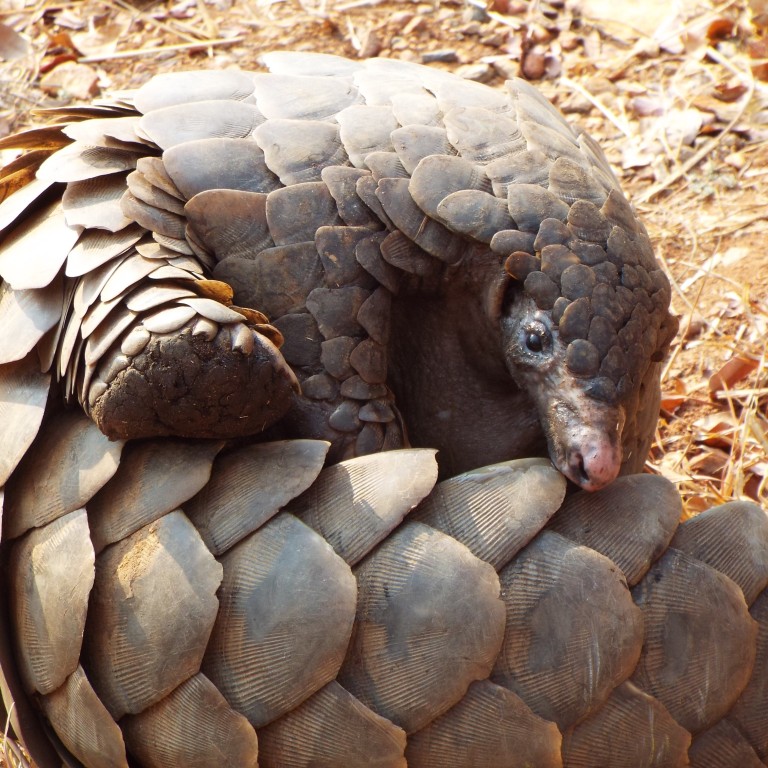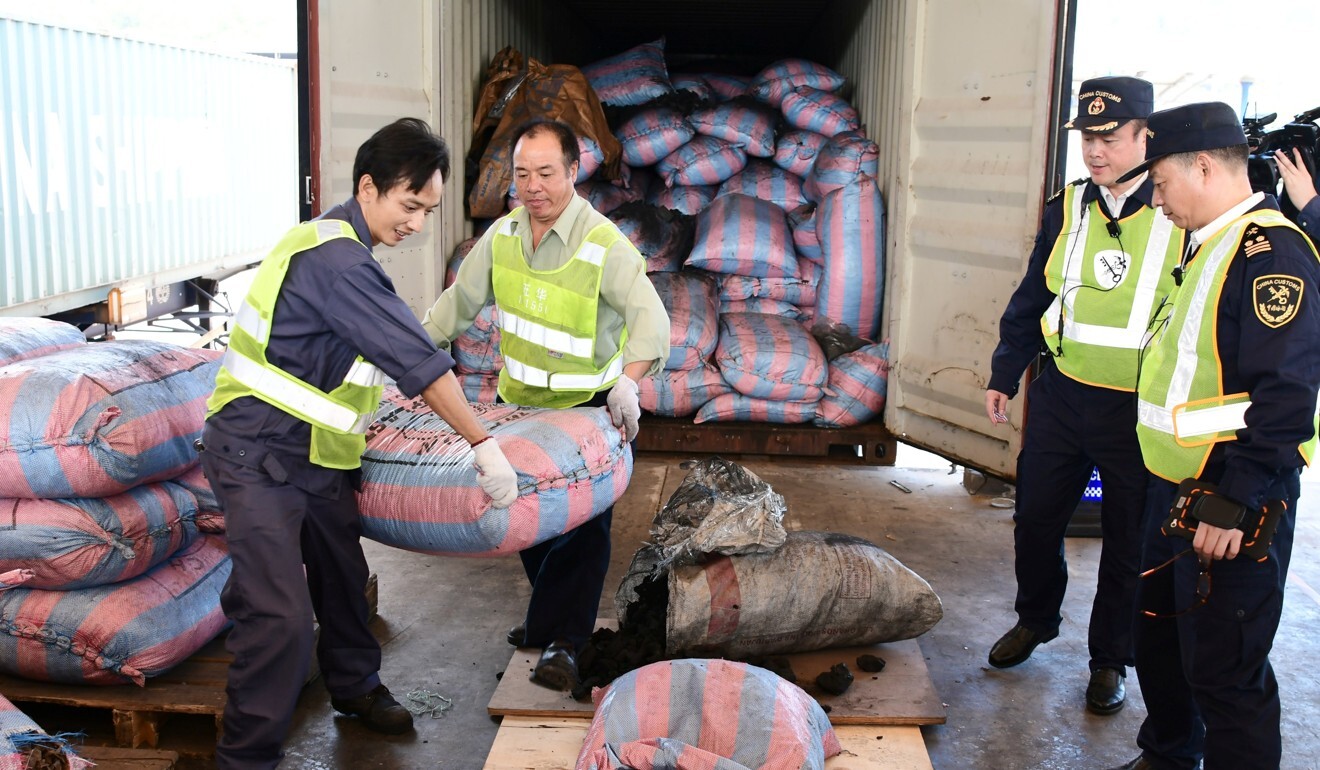
China steps up legal protections for pangolins
- World’s most trafficked animal is highly endangered due to strong demand for its scales for use in traditional Chinese medicine
- Pangolins could have played intermediary role in transmission of Covid-19 from bats to humans and conservationists have welcomed stronger penalties for killing and smuggling animals
China has stepped up legal protections for pangolins, one of the world’s most endangered animals.
The animals are in high demand for traditional Chinese medicine, but many scientists suspect they may have played a role in transmitting the coronavirus that causes Covid-19 from bats to humans.
The National Forestry and Grassland Administration announced on Friday that pangolins are now a grade one protected animal, the highest possible level.
China’s official news agency Xinhua said pangolins used to be commonplace south of the Yangtze, but populations have now shrunk dramatically.
According to a national survey in 2003 – the most recent figures available – the number of pangolins had dropped to around 64,000 across 11 provinces.
Pangolin trade highlights loopholes in rules to prevent spread of animal viruses
Although China banned poaching of pangolins in 2007 and forbade imports of the animals and products made from them in 2018, it remains the world’s most trafficked animal and smuggling from southeast Asia remains rife.
There is a high demand for pangolins as their scales and blood are prized for their role in making traditional remedies, while their meat is considered a delicacy.
The higher protection grade for pangolins means that poachers and smugglers would face stiffer sentences if they are caught, including jail terms of more than 10 years in the most serious cases.

Xinhua’s report said that the national forestry authorities would step up a survey of the wild pangolin population and their habitats to improve conservation efforts, while extra manpower will be recruited to carry out inspections and to prevent poaching.
The authorities are also planning to step up research into rearing pangolins in captivity for release into the wild and are also planning to set up pangolin protection centres and genetic databases.
WWF praised the decision to upgrade their legal protection, with Zhou Fei, vice secretary-general of the environmental body’s Beijing office, saying: “The ecological value of pangolins far exceeds the value of their meat or scales.”
Could pangolins be a piece of the coronavirus puzzle?
China has already banned the trade and consumption of wild animals in response to Covid-19 after scientists said the coronavirus had jumped from animals to humans.
Sun Quanhui, a scientist at World Animal Protection’s Beijing office, said some research suggested pangolins could be the intermediary host, but the findings were not conclusive.
“At least 70 per cent of diseases that can infect both animals and humans originate from wild animals. It means that close contact with wild animals has the potential risk of getting infected,” Sun said.
“Not using them in medicine and not regarding them as toys or pets is actually the best protection for wild animals. To reduce public health risks, wildlife trading across the globe should be outlawed,” he said.

